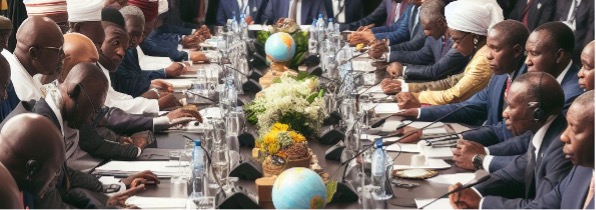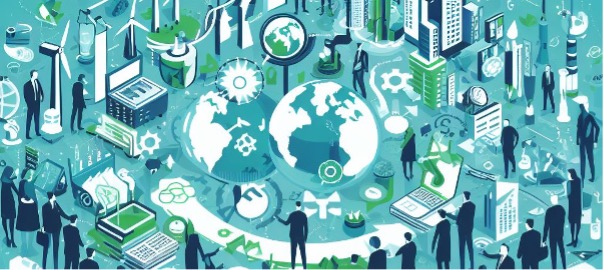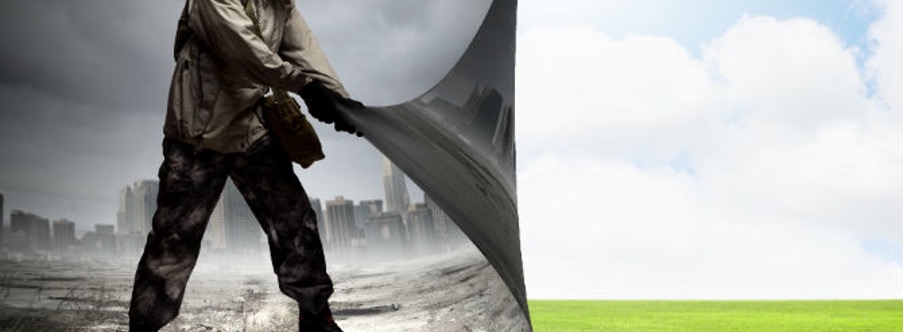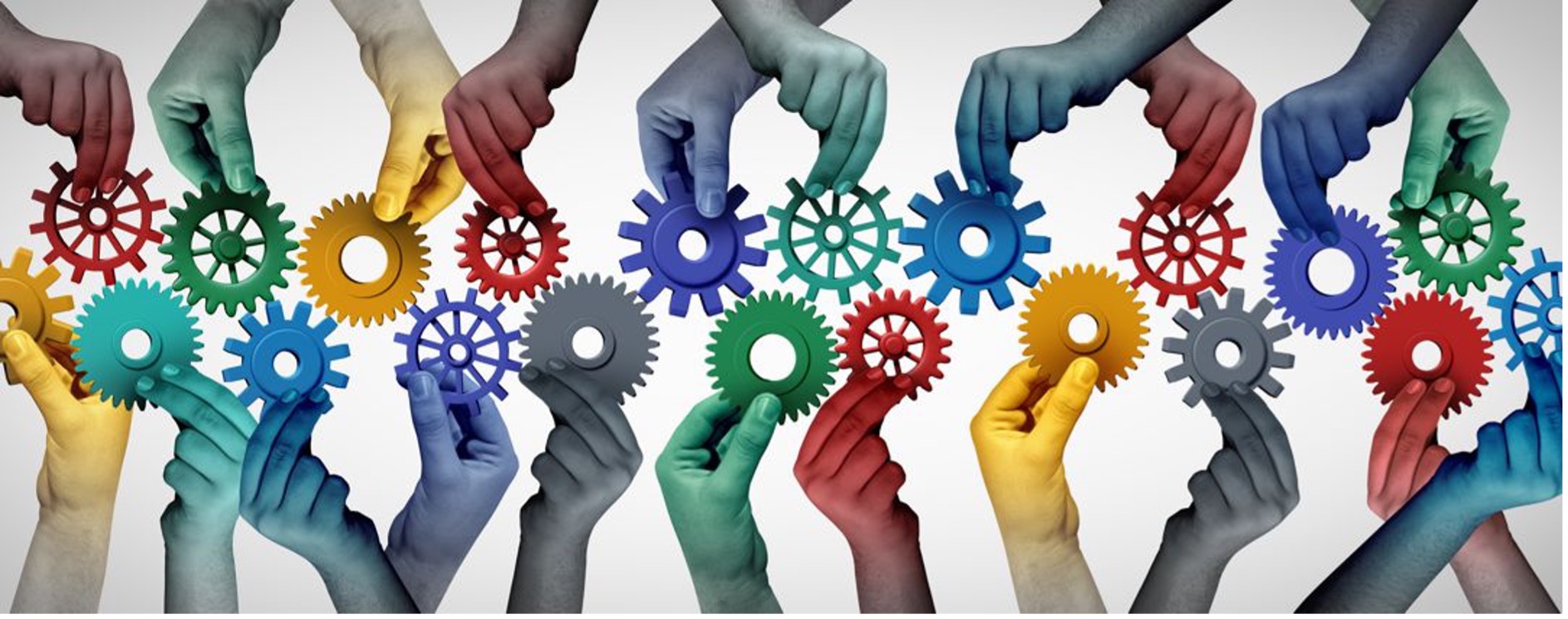CTN0032023
By Joel Onyango
Climate change is a global phenomenon that poses significant challenges to our planet and its inhabitants. Rising temperatures, changing weather patterns, and escalating natural disasters are just some of the alarming consequences we are witnessing.To effectively address this issue, collective action from governments, organizations, and individuals is crucial. Together, we can adapt to the changing climate and mitigate its devastating effects on our environment and society.
Government Leadership and Policies

Governments play a vital role in spearheading efforts to combat climate change. They have the power to develop and implement policies that promote sustainable development and protect our natural resources. For instance, governments can enact regulations to encourage the use of renewable energy sources, such as wind and solar power, which significantly reduce carbon emissions and dependence on fossil fuels 1. Additionally, they can support sustainable land use practices, such as reforestation and conservation initiatives, which help preserve biodiversity and ecosystems 2.
"Governments have a responsibility to lead the way in addressing climate change. Bold policies and international collaboration are essential to create a sustainable future." - Angela Merkel
"Government policies have the power to shape a sustainable future. By promoting renewable energy and embracing low-carbon practices, we can mitigate the effects of climate change." - Christine Lagarde
Organizations and Businesses' Responsibility

Organizations and businesses also have a significant role to play in adapting to climate change. Many forward-thinking companies recognize this responsibility and work towards sustainable practices that reduce their environmental impact. By adopting energy-efficient technologies, implementing waste reduction strategies, and incorporating sustainable supply chains, businesses can contribute to global climate change mitigation efforts 3. Moreover, these initiatives often lead to long-term cost savings and enhance their brand reputation, resulting in increased competitiveness in the marketplace 4.
“If you really think that the environment is less important than the economy, try holding your breath while you count your money." - Leonardo DiCaprio
“The time is now for businesses to lead by example and take bold action in tackling climate change." - Paul Polman
Individual Actions Matter

While governments and organizations set the stage, individuals have a crucial role in contributing to climate change adaptation. Simple yet impactful actions can be taken in our daily lives to reduce our carbon footprint and promote sustainable living. By conserving energy, such as turning off lights and utilizing energy-efficient appliances, we can significantly reduce greenhouse gas emissions 5. Choosing eco-friendly transportation alternatives, like walking, cycling, or using public transport, can reduce our reliance on fossil fuel-powered vehicles and lower emissions 6. Additionally, embracing sustainable habits, such as recycling, reducing food waste, and using reusable products, can further reduce our impact on the environment 7.
"Although the magnitude of climate change may make individuals feel helpless, individual action is critical for meaningful change." - Mia Armstrong
"Every small step towards sustainable living contributes to the collective effort against climate change. Never underestimate the power of individual actions." – Anonymous
The Power of Collaboration

Adapting to climate change requires collaboration among various stakeholders. Government, organizations, and local communities working together can yield powerful results. Collaborative projects that encompass diverse expertise and perspectives are often more effective in achieving climate change adaptation goals. For instance, partnerships between governments, non-profit organizations, and local communities can leverage resources, knowledge, and indigenous wisdom to implement sustainable practices tailored to specific regions 8. Strong community involvement fosters a sense of ownership, encourages innovation, and empowers individuals to be active participants in climate change adaptation 9.
“As a global community, it is imperative that we act quickly and together to confront this crisis. And this will require innovation and collaboration around the world." - Kamala Harris
"If you want to go fast, go alone. If you want to go far, go together." - African Proverb
Looking Towards a Sustainable Future
Adapting to climate change is a collective responsibility. Governments must take the lead in developing and implementing policies that encourage sustainable practices and protect our environment. Organizations and businesses should commit to reducing their carbon footprint and promoting sustainable operations. Individuals have the power to make sustainable choices in their daily lives that collectively make a significant impact. The collaboration between governments, organizations, and local communities is imperative to successfully adapt to climate change.
The Climate Resilient Economies’ Programme at the African Centre for Technology Studies (ACTS) invites you, to work together with us, and build a sustainable future for generations to come. Our partnership hub focuses on leveraging the existing and other potential partnerships, to allow the programme to link its work to broader platforms on climate action by tapping into innovative tools for influencing action for the CRE:
- Policy lab: opening up and broadening out the options for evidence-based policy simulations and advisory for optimizing climate action in the region, along the climate relevant sectors.
- Learning lab: providing opportunity for both the synchronous and asynchronous learning content and material.
- Business hub: commercialization of local transformative ideas, with mitigating, resilience building, and adaptation potential.
- Impact hub: to recognize emerging demand driven gaps, measure and take stock of the value and new concepts, towards bridging the gaps on climate action.
Sources:
- IPCC. (2018). Global warming of 1.5°C. Retrieved from https://www.ipcc.ch/sr15/ ↩
- WWF. (n.d.). Sustainable land use. Retrieved from https://www.worldwildlife.org/initiatives/sustainable-land-use ↩
- United Nations Global Compact. (n.d.). Sustainable Business. Retrieved from https://www.unglobalcompact.org/what-is-gc/our-work/environment/sustainable-business ↩
- Porter, M., & Van der Linde, C. (1995). Green and competitive: ending the stalemate. Harvard Business Review, 73(5), 120-134. ↩
- U.S. Department of Energy. (n.d.). Saving Energy at Home. Retrieved from https://www.energy.gov/energysaver/save-electricity-and-fuel/lighting-choices-save-you-money/saving-energy-home ↩
- European Environment Agency. (2014). How can transport contribute to climate change mitigation? Retrieved from https://www.eea.europa.eu/themes/transport/transport-and-environment/how-can-transport-contribute-to ↩
- EPA. (n.d.). Reduce, Reuse, Recycle. Retrieved from https://www.epa.gov/recycle/reducing-waste-what-you-can-do ↩
- Gonzales, L., & Livengood, A. (2016). Taking Stock: Collaborating for Climate. Retrieved from https://www.academia.edu/30455528/Taking_Stock_Collaborating_for_Climate ↩
- Adger, W. N., et al. (2005). Social capital, collective action, and adaptation to climate change. Economic Geography, 79(4), 387-404. ↩

